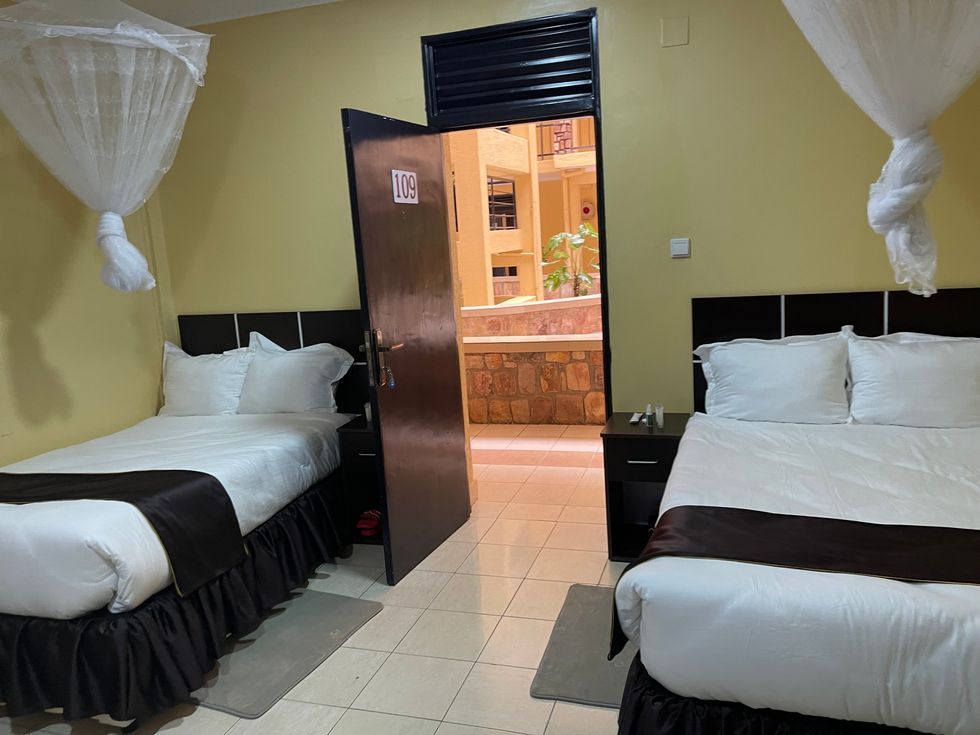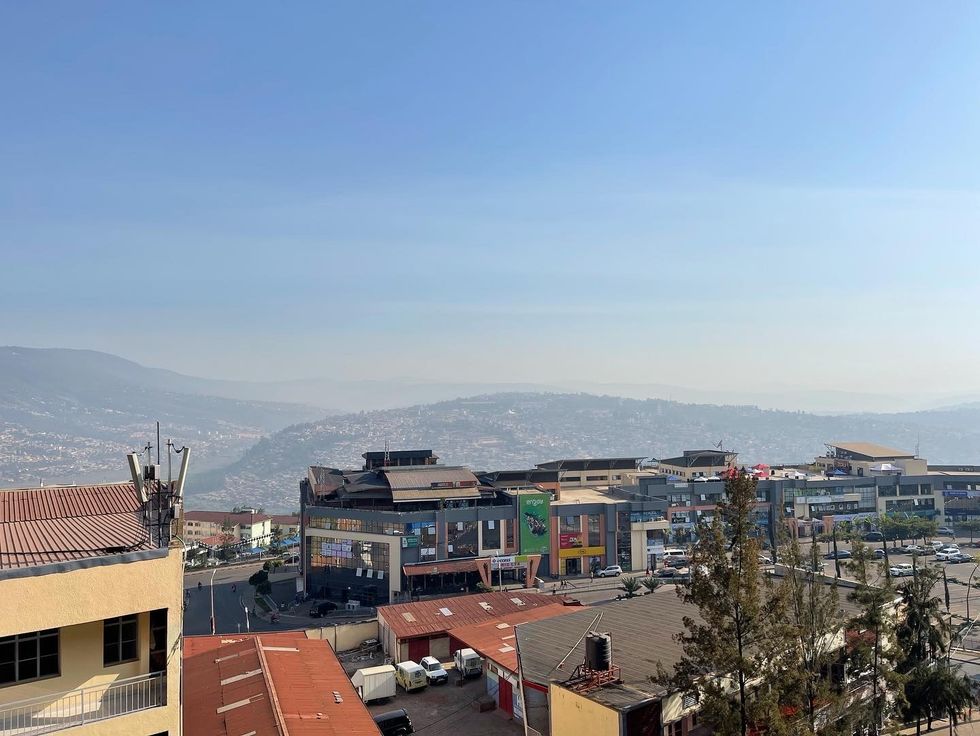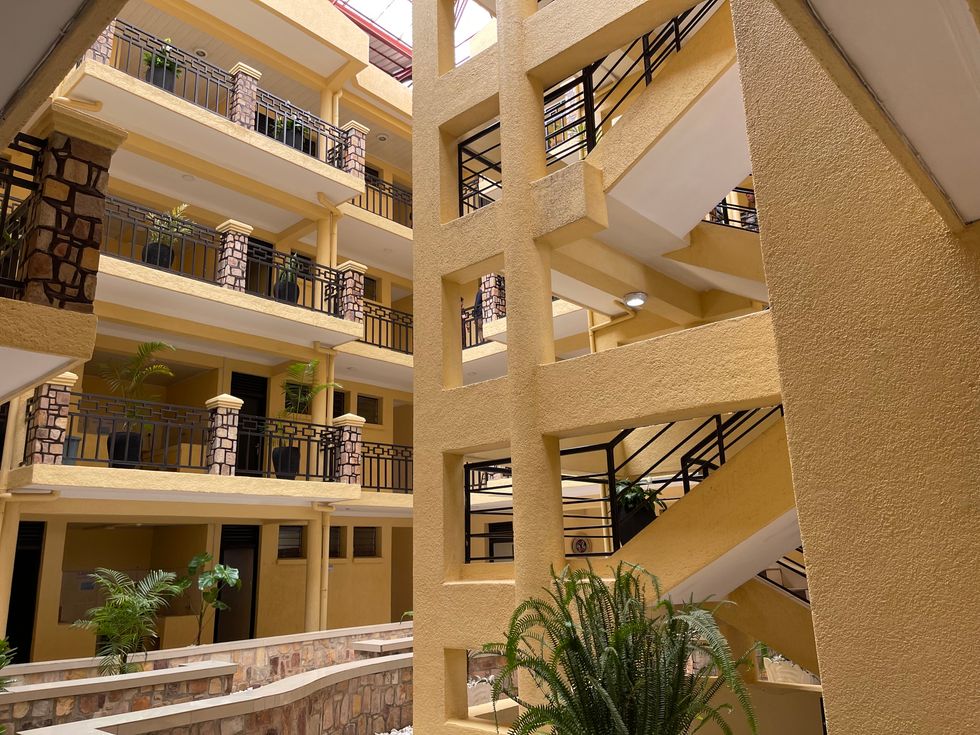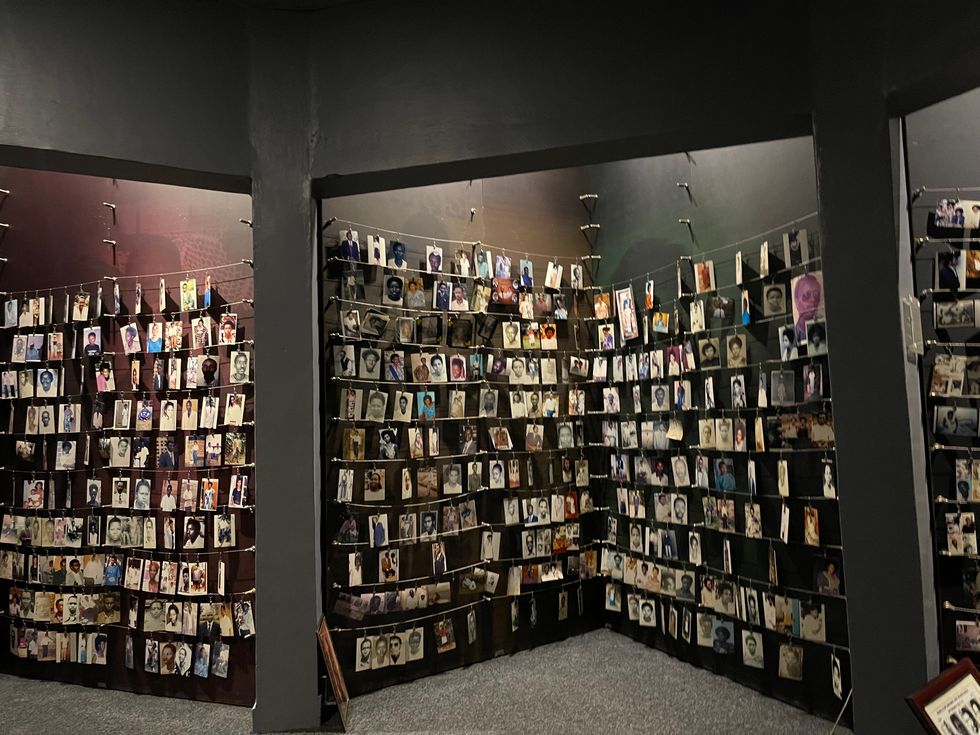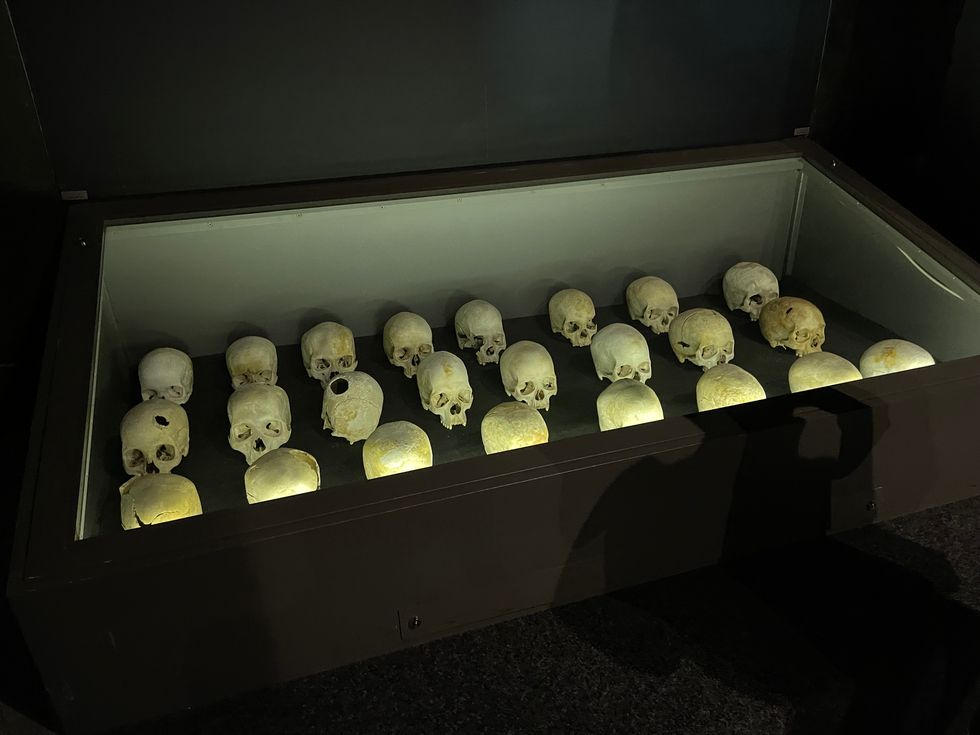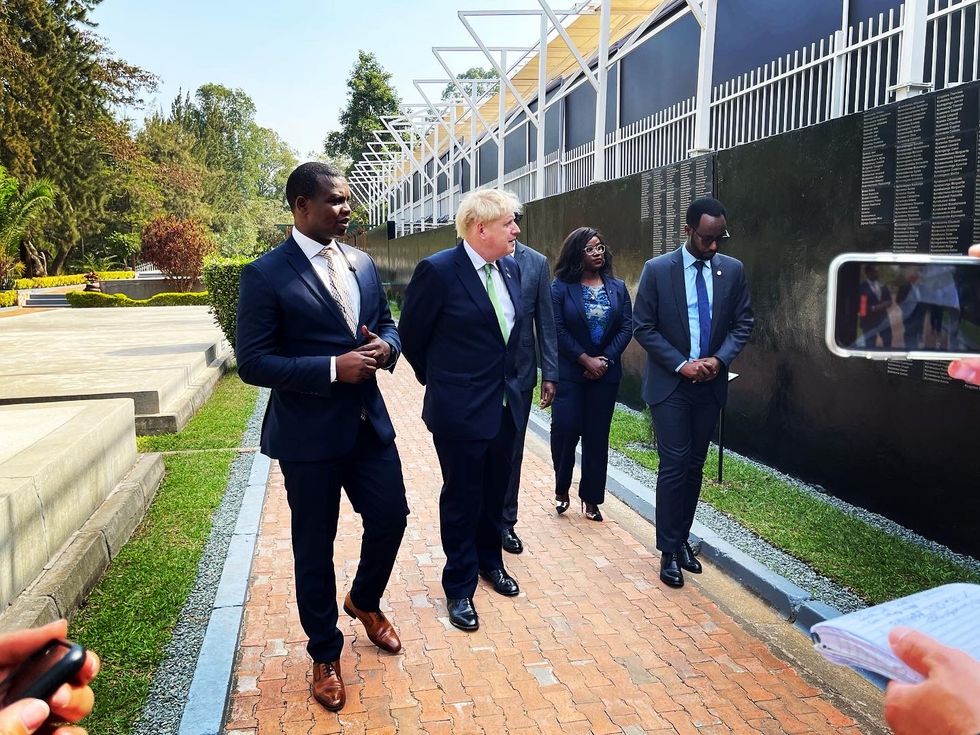Don't Miss
Most Read
Trending on GB News
On the summit of one of the very hills lies Hope Hostel. A bookmark of one of the most controversial policies put forward by a British government in decades – the Rwanda Asylum Plan.
Now, this piece is not going to be about Government policy, whether you support it or not, everyone has already made their minds up.
This is going to focus on Rwanda as a country and the experience and reflections on spending the last week in the country for one of the biggest events it has ever hosted, the 2022 Commonwealth Heads of Government Meeting.
After spending the last six days in the heart of the Rwandan capital Kigali it has become clear that the harshness in which some of the mainstream media in the United Kingdom has portrayed Rwanda is not truly representative of the country.
When arriving in Kigali you are confronted by a modern 21st-century city, with infrastructure that would not only rival but surpass some major cities in Eastern Europe.
The public transport across the city is reliable, levels of crime compared to other major African cities are incredibly low, the endless hills make for incredible viewing and the locals are some of the friendliest I have encountered across the world.
Throughout the city, there are areas such as the Kigali Convention Centre and the BK arena which, in all seriousness, are better than most that you would find in the United Kingdom.
Rwanda is even in the process of constructing Africa’s first ‘Silicon Valley’, something the locals seemed to be very proud of.
The development of the Kigali Innovation City is a part of a strategy from the Rwandan government led by President Paul Kagame to move towards a knowledge-based economy with ambitions to turn Kigali into Africa’s tech and business hub.
The progress that Rwanda has made over the last 20 years is even more incredible when we consider that it was victim to one of the biggest human atrocities of the 20thcentury, the Rwandan Genocide.
In Kigali, the GB News team visited the Kigali Genocide Memorial Museum and the experience was humbling.
The very idea that within 100 days 800,000 people were slaughtered by ethnic Hutu extremists is hard to comprehend for many people, however, seeing the faces of the victims and hearing the stories of the survivors makes it all very real.
When Prime Minister Boris Johnson visited the museum on Thursday his message in the guest book was poignant.
It read: "It has been utterly shocking to see these images, and so many physical memorials, of the appalling and inexplicable genocide against the Tutsis.
"We must do everything we can to ensure that human hearts never again are allowed to breed such hatred."
With the Prime Minister trying to focus on the Commonwealth meeting, by-election defeats at home proved to be a huge distraction.
One area where the Prime Minister is keen to make progress is the Rwanda Asylum Plan.
On the eve of his visit to Kigali, the Prime Minister labeled critics of the plan as "condescending" and it was very much of the hope of No.10 that the traveling press pack would be able to see Rwanda in its "true light" and that it wasn’t as bad as critics feared.
This meant that the journalists from the UK got to visit the flagship venue of the asylum plan, Hope Hostel – and, to be honest, it would be difficult for anyone who saw the facilities to argue that the accommodation was not up to scratch.
The hostel was spacious, the rooms (although shared) were a good size and modern facilities were available throughout.
The Rwandans are very proud of this complex and it is clear to see why. Interestingly, when speaking to locals in the area of Kigali where the hostel is based, they complained that the facilities migrants would be living in were better than where they lived.
Now we can turn to the controversial figure that is the Rwandan President, Paul Kagame.
Many locals we spoke to in Kigali regard the President as a hero.
Kagame was the figurehead of the Rwandan Patriotic Front who emerged victorious and brought about the end to the Rwandan Genocide in July 1994.
He then served as Vice President of Rwanda before assuming the Presidency in 2000.
There is no doubt that Rwanda is in a much better place than it was when he assumed office, one local even remarked that the Kigali a decade on is "unrecognisable".
Kagame has had praise lauded on him by former Western leaders such as former US President Bill Clinton who referred to him as “one of the greatest leaders of our time”.
It is worth mentioning that Tony Blair was hired by President Kagame as an advisor in 2009 and he still advises the Rwandan President to this very day.
But here are genuine concerns amongst many in the West over the Rwandan President’s record on human rights.
Eyebrows were correctly raised in 2017 when Kagame won his third consecutive term, receiving 99 percent of the popular vote.
Throughout the tenure of Kagame’s presidency, there have been accusations of links between his government and the disappearance of political opposition both in Rwanda and across the world.
Most recently in 2021, Rwandan journalist Christopher Kayumba set up a new political party named the Rwandese Platform for Democracy.
Kayumba then published an open letter, criticising President Kagame and his response to the Covid-19 pandemic.
Following the open letter, accusations of sexual misconduct and rape were brought against Kayumba – with him remaining in prison to this very day.
Journalists in Rwanda also face a precarious situation, with the country coming in at 136th worst for press freedom out of 180 countries modelled by Reporters Without Borders.
The clampdown on journalists in Rwanda was even clear during our visit, with many prominent critics of the Rwandan government not gaining access to the Commonwealth Meeting.
Rwanda as a country which is constantly adapting to attempt to become a central African player in the modern world.
It has advanced massively in the last few decades and infrastructure; health care and education are right up there with the best on the African continent.
Prime Minister Boris Johnson remarked during his visit on Thursday that it was remarkable "a country that experienced some of the worst horrors of the 20th century in recent memory now finds itself with a thriving social and economic life and near-universal primary education".
In this regard he is correct, the progress made by Rwanda is extraordinary and the idea that sending migrants here is somehow sending people to an imminently dangerous or horrible place is an insult to the country and the Rwandan people.
But let’s not get carried away – Rwanda is not perfect.
It is clear that alongside real progression, Kagame’s human rights abuses persist and his close ties with the West should not mean that they should be ignored or put on the sidelines.
Rwanda's Hope Hostel
GB News
The hills of Kigali
GB News
Kigali's Hope Hostel
GB News
Rwanda's genocide memorial museum
GB News
Skulls on display in Rwanda's genocide memorial museum
GB News
Boris Johnson in Rwanda
GB News











